We’re excited to introduce you to the always interesting and insightful Allie Haydon. We hope you’ll enjoy our conversation with Allie below.
Allie, looking forward to hearing all of your stories today. We’d love to hear about the things you feel your parents did right and how those things have impacted your career and life.
In my field, working with a lot of young people, that includes a lot of work with their parents. I know parents can often feel like they “can’t do anything right” with their challenging teen. I was a VERY challenging teen! And although all parents are human and make mistakes, one of the things my parents did well was teach me how to make amends by making amends themselves. My parents often demonstrated for me what taking accountability looked and sounded like and how to sincerely make amends rather than simply apologizing. They taught me that changed behavior was the real apology.
When it came time to hold a firm boundary with me when I was a young adult, I really hated them for it then, but it didn’t take me long to be really grateful that they were willing to let me fail and willing to let me hurt a little to learn a life changing lesson. They didn’t cover for me. They didn’t bail me out of a bad decision I had made. They didn’t accept dishonesty. But they did detach with love from me and my decisions and hold firm boundaries that allowed me to make new and better decisions going forward. It wasn’t pretty at first. I fought them hard on it. I couldn’t understand why they wouldn’t lie for me, bail me out, and protect me! But, now I know that they were allowing me to experience the natural consequences of my decisions. Once I was sick and tired of those consequences, I made better decisions.
Those decisions led me very quickly to a career path that I absolutely love: working with young people and their families.
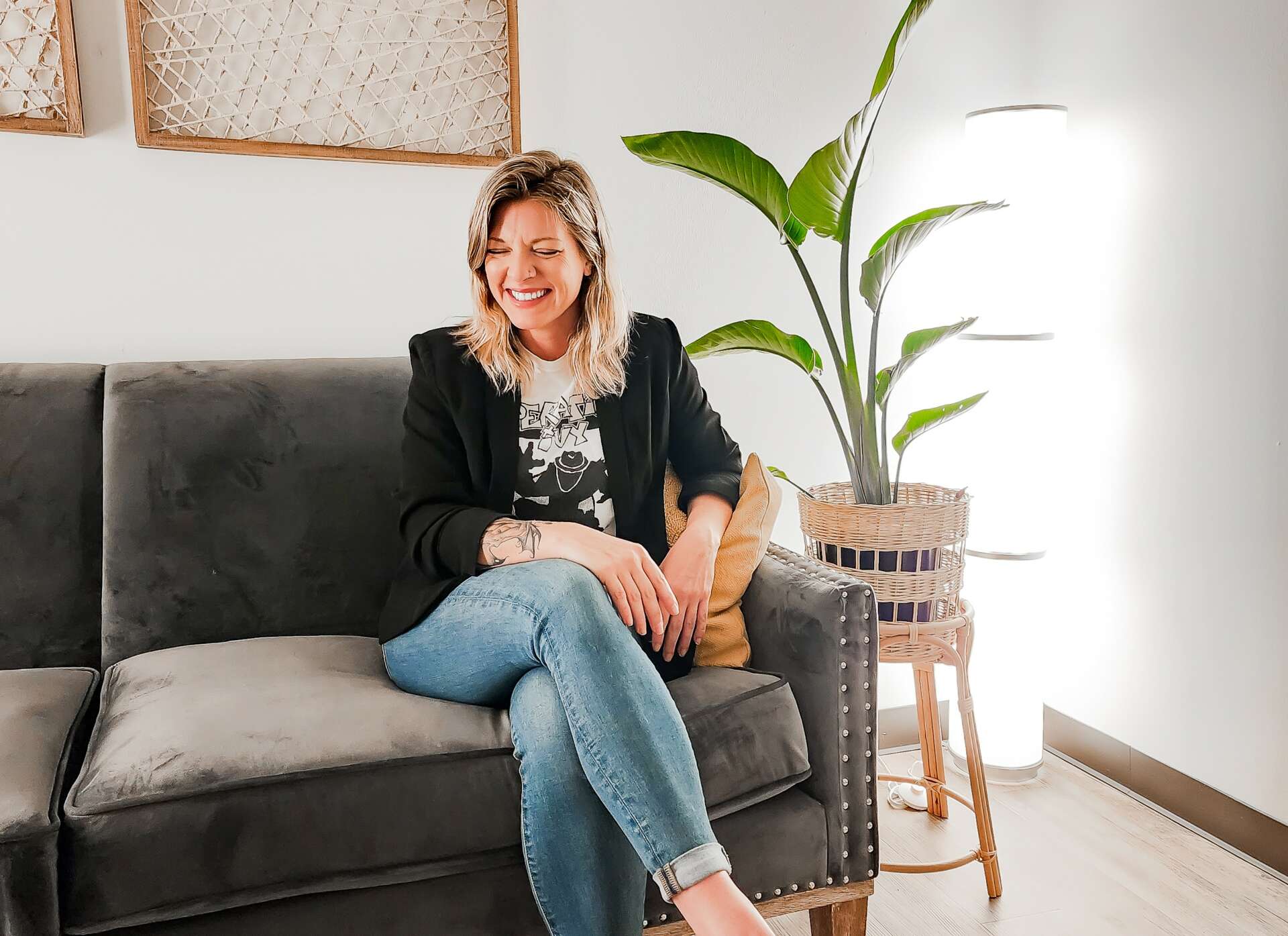
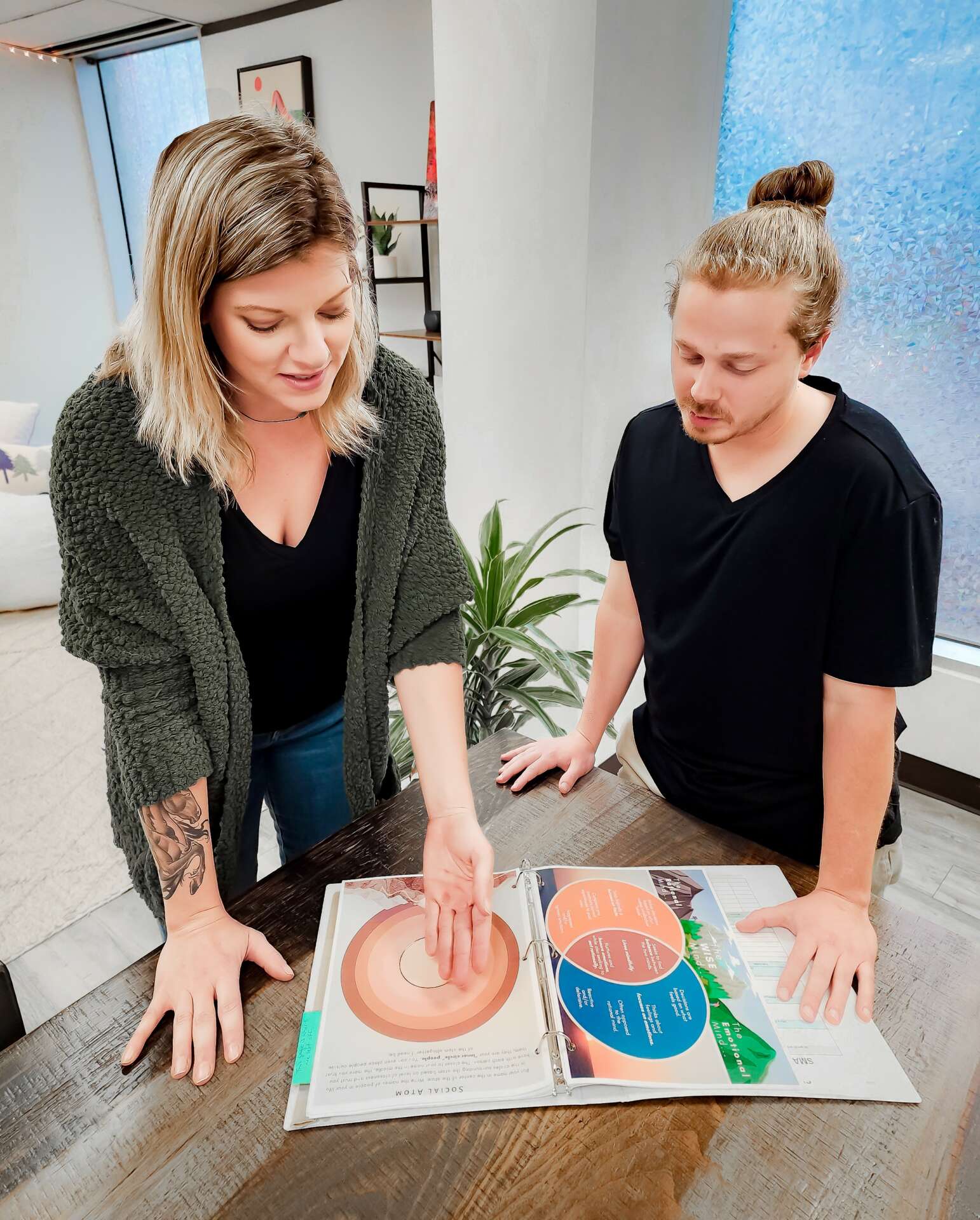
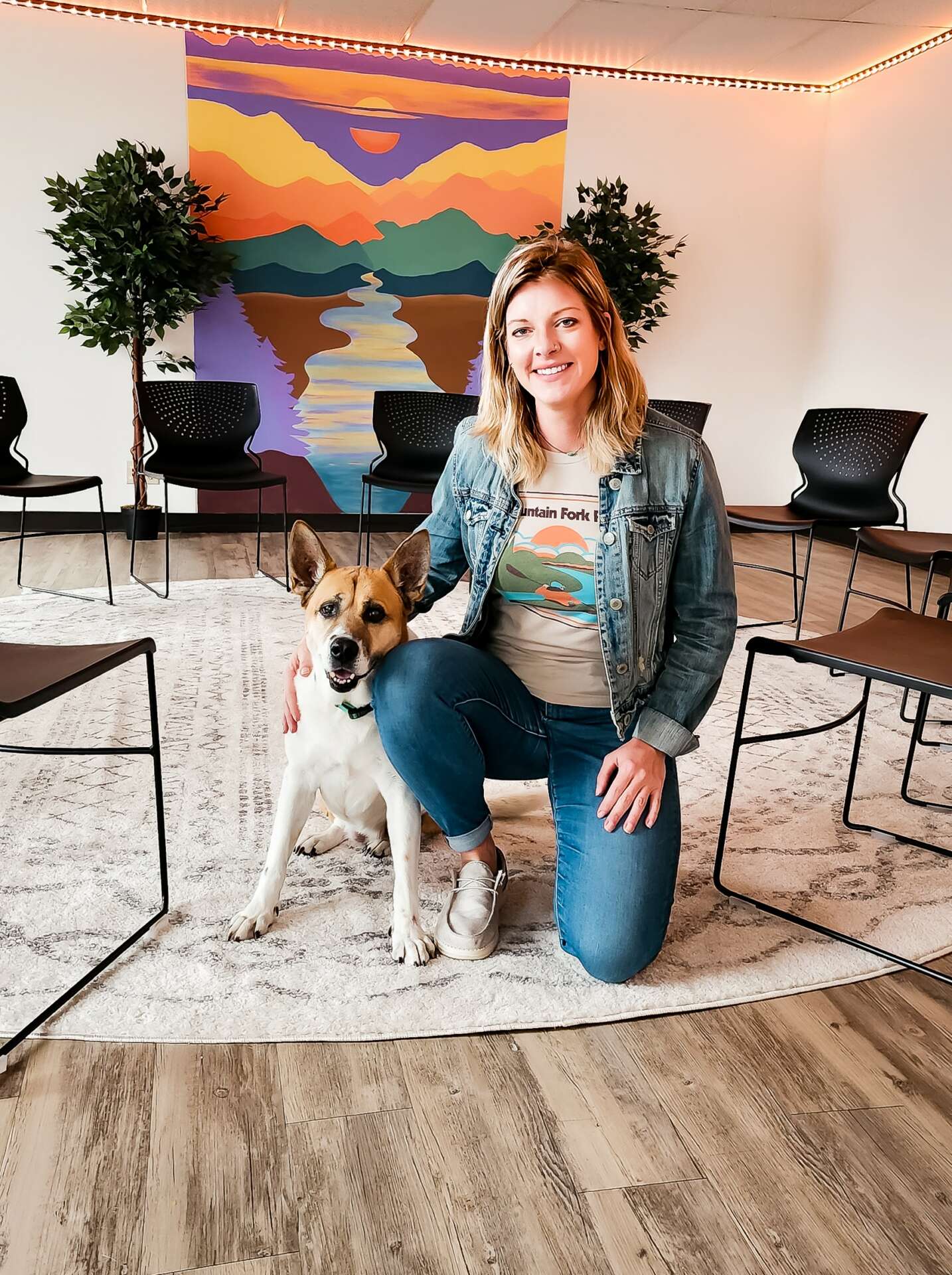
Allie, love having you share your insights with us. Before we ask you more questions, maybe you can take a moment to introduce yourself to our readers who might have missed our earlier conversations?
I was a challenging teenager and young adult growing up and struggled with a lot of the same issues I see clients for now; oppositional defiance, depression, substance abuse, anxiety, self-doubt, self-harm, and anger. Once I decided to start making some different decisions and get the help I needed, I realized how much I wanted to help other young people, and subsequently their parents, struggling with the same issues.
I’ve had a unique opportunity to work in various levels of adolescent care here in Houston and I’ve gotten to see how well many of these programs collaborate with each other. After being in private practice for the last 5 years, I decided to start my own Intensive Outpatient Program because I saw the need for a higher level of care for teens that covered a wider range of issues than simply “mental health” or “substance use.”
Our Intensive Outpatient Program consists of 9 hours of group therapy per week and 1 hour of either an individual or a family session each week for 10 weeks. The nice thing about our program is it is intentionally small (10 clients or less) so that we can personalize each client’s experience as much as possible for them.
I was finding that while I can do great work with a teen in a session, once I send them home, the dynamic at home hasn’t changed which slows progress since not everyone is on the same page. I wanted to build a program with a heavy emphasis on the family component so that everyone involved in the teen’s life could be in the same room learning about new strategies and skills for addressing mental health concerns. We talk a lot about HOW to talk about mental health concerns in the family. This way we can reduce the stigma, express how we are really thinking and feeling, and ask for what we need from those closest to us in real time. We offer a Multi-Family Group every week along with family sessions so we can ensure that family’s are communicating effectively from the start in the program.
Teens today are struggling more with mental health issues than in the past, but what parents notice first is typically a drop in grades, outbursts at home or school, isolation, over use of social media/internet/video games, substance use, and/or self-harm. I wanted to create a program that didn’t necessarily focus on the behavior that brought them there, but rather the underlying mental health concern needing to be addressed and the strengths each teen already possesses. I’ve essentially condensed down my individual work with clients into a shorter, more in-depth version leading them to the same results in a faster amount of time.
How about pivoting – can you share the story of a time you’ve had to pivot?
I feel like the entire story of me deciding to go into this profession was based on a pivot in life and subsequently, most everything I learn and pass onto my clients is because I had to go through something, learn from it, and grow. That’s possibly one thing I know my clients hear from me a lot…”I only know this because I had to practice it myself.”
Most recently, I went through another pivot in life when I got divorced. Although it was one of the most painful experiences I’ve endured, I can also say that I learned more about myself from that experience than I had since I was a young adult.
Part of what I took away from that experience was shedding this narrative of myself and what I thought deserved. It was a weird feeling coming to that realization. It felt like a snake shedding a layer of skin. I had been confined and uncomfortable for so long and didn’t even know it. Now I had room to move around and breathe!
Once I was able to recognize that I had been telling myself the story of “What Allie Does” and sticking to an old script that no longer seemed to fit, I was able to write a new one. I was able to start from the NOW. Rather than who Allie WAS and what THAT Allie would do or say, I got to stop and think….What does Allie NOW think? What does Allie NOW want to do? The values I hold today are different than the ones I held 15 years ago….it was time to update everything based on this new information!
A part of that process was forgiving myself for past mistakes and decisions I was still holding onto. I wasn’t that teenager that made all those bad decisions anymore and it was time to stop acting like I needed more penitence for it. I was able to make friends with my inner critic and stop ignoring her or letting her get louder and louder. Instead, now I take a look at what she’s telling me, see if it applies or has any merit, and if it doesn’t, treat it like I would advice from anyone else that doesn’t apply…I just let it go (easier said than done obviously).
I fully believe that I need to continue doing my own personal work to keep being helpful to my clients who are having to do their own work too. I tell them all the time, I would never have them do a homework assignment or practice a strategy that I haven’t tried myself.

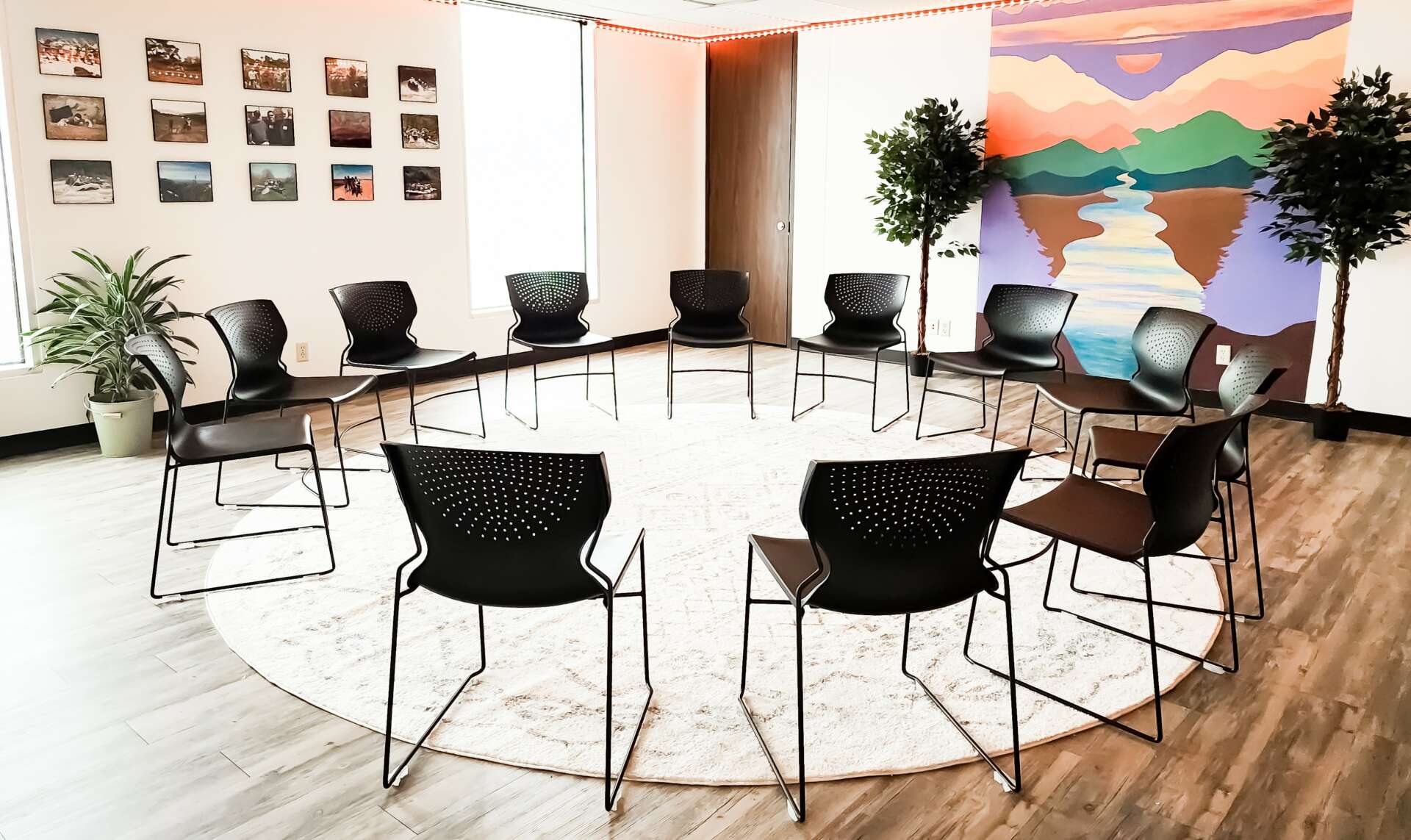
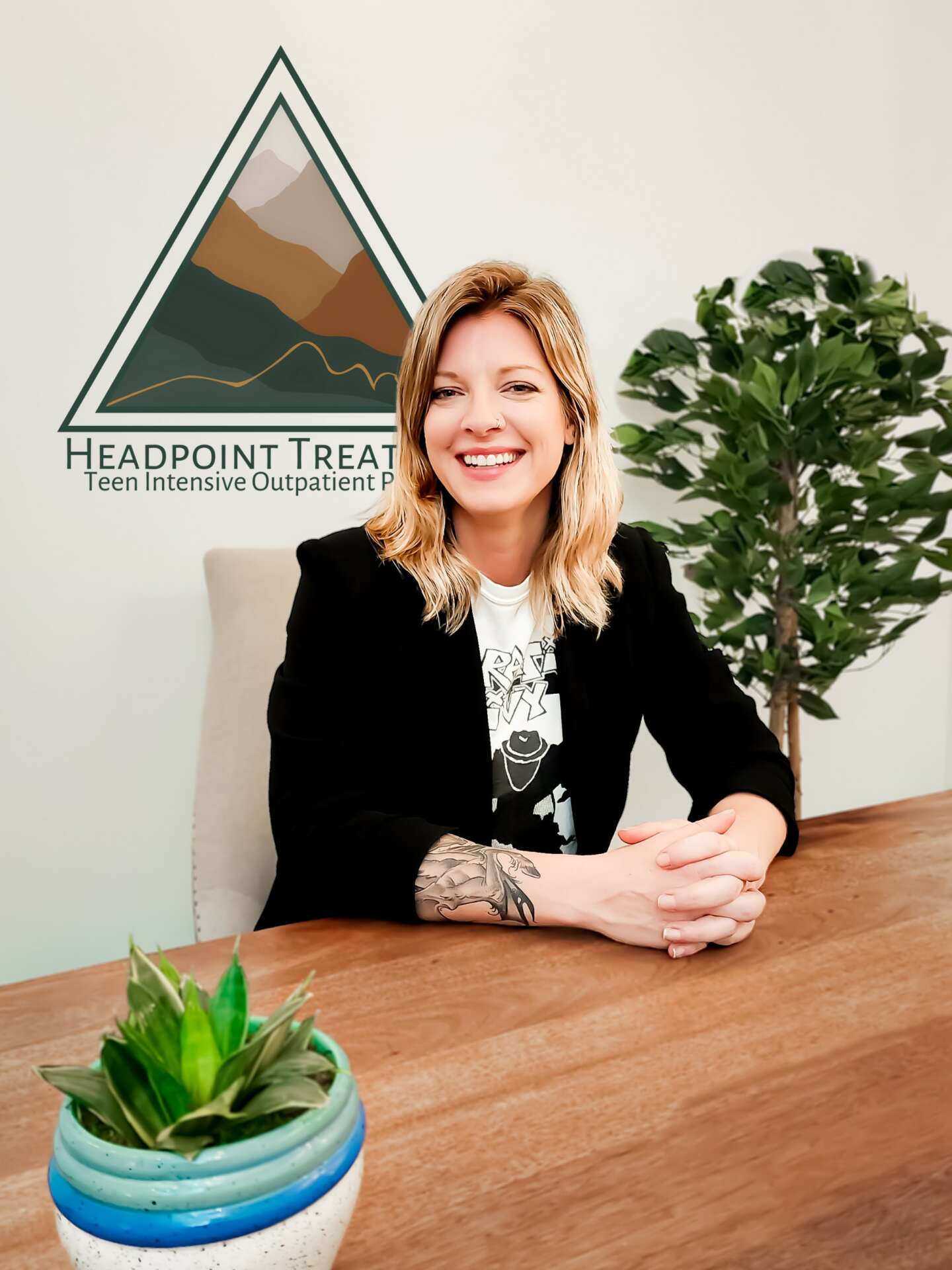
Training and knowledge matter of course, but beyond that what do you think matters most in terms of succeeding in your field?
A lot of clients have told me the reason they come back to me is because of my authenticity and ability to not sugar coat things. I guess I think about how I feel on the other side of the therapeutic relationship and I don’t want someone to waste my time. I usually tell clients in our first meeting that I’m not the flavor of therapist for everyone and that’s ok. If clients are looking for someone to let them vent for an entire hour, that’s not me. We get to work when we’re together. We have tough conversations. We take accountability for our choices. We grieve. We cry. We get angry and scream into pillows. We practice taking ownership of what we are doing well. We give ourselves credit for small progress. We look at what our strengths are that we can capitalize on and grow. We work.
I know that times are tough and money is tight, and although I disagree that mental health is a luxury, I also know that money is often a barrier to treatment. I don’t want to waste anyone’s resources, just like I wouldn’t want someone to waste mine. If I know a colleague that would be a better match for someone, I’m going to refer them asap. I would rather someone get the help they are seeking than try to help even though it’s not my area of expertise. I know what I am good at, I know who I work really well with and who benefits from my help the most. There are too many great clinicians in Houston to hold back those resources from people who really need them.
I’ve found that the ability to own your niche, your brand, and have an abundance mindset knowing that the clients who need you are the ones that will find you is key. I don’t hold onto clients because I think I should. I do what’s best for the client and I know that will be honored and come back to me. I truly believe and operate by that premise.
Contact Info:
- Website: www.HeadpointTreatment.com
- Instagram: https://instagram.com/headpointtreatment?igshid=YmMyMTA2M2Y=
- Facebook: https://www.facevook.com/profile.php?id=100088857986624&mibextid=LQQJ4d
Image Credits
Brooke Taylor – photograpgher


